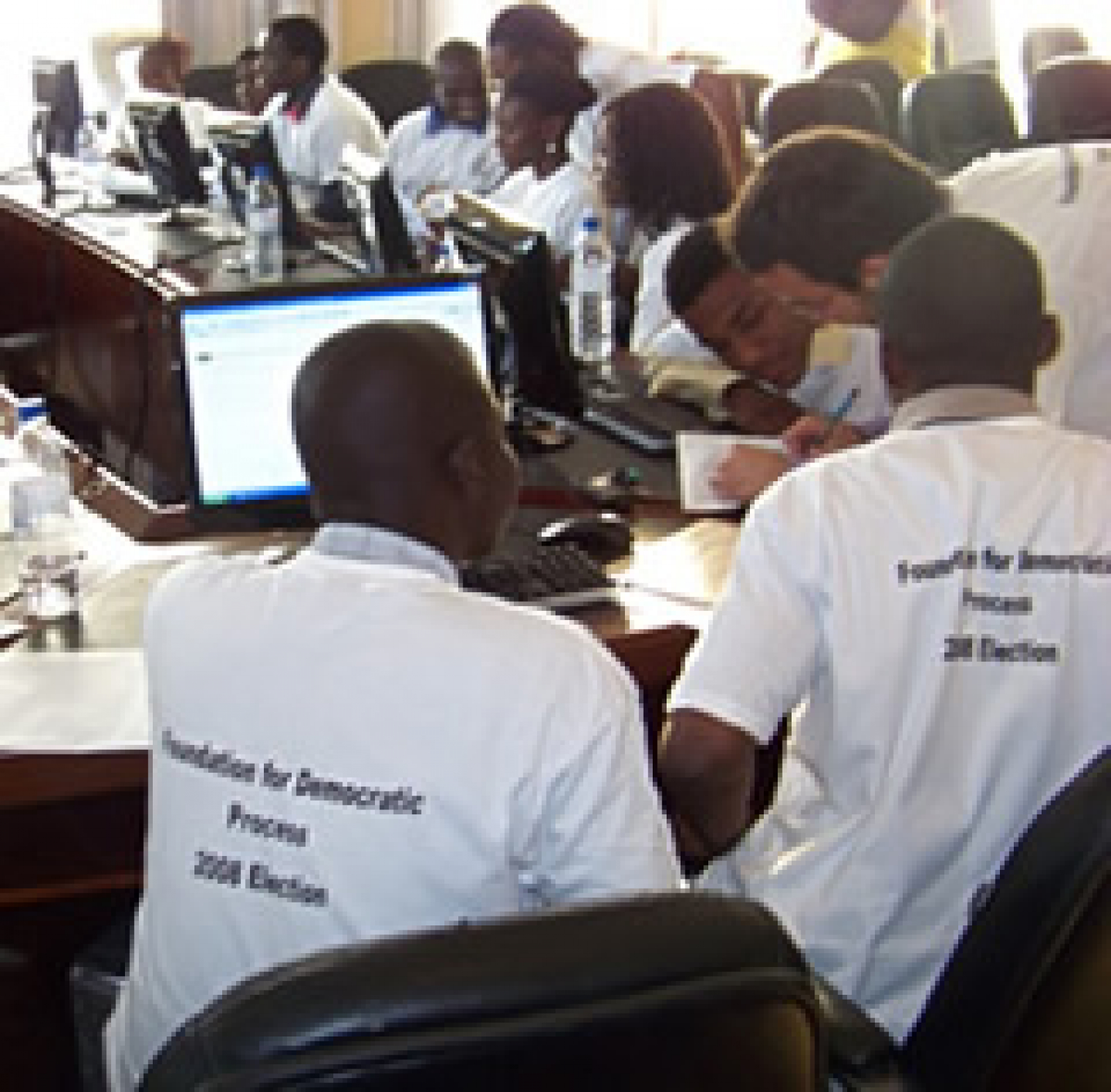
Zambian voters went to the polls Oct. 30 to elect a successor to President Levy Mwanawasa, whose unexpected death last August prompted the special election. With technical assistance from NDI, the Foundation for Democratic Processes (FODEP), the Institute’s long-time election monitoring partner in Zambia, conducted a parallel vote tabulation (PVT) to evaluate the quality and accuracy of the tabulation process.
As was the case in previous elections, the Election Commission of Zambia (ECZ) did not enjoy widespread confidence and several contestants indicated their unwillingness to accept a result of a win for the ruling party candidate. The results of the PVT, which showed that the election was well run and that the results were accurate, proved critical to ensuring voter confidence in Vice President Rupiah Banda’s narrow victory, likely preventing widespread violence among supporters of opposition candidate, Michael Sata.
FODEP, an umbrella organization comprised of several civil society groups, has helped since 1992 to engage citizens in election observation, civic education, human rights monitoring and capacity building of political parties and election officials at the national, state and local level. A nonpartisan civic organization, it grew out of the Zambia Election Monitoring and Coordinating Committee (ZEMCC), which was formed to monitor Zambia’s first round of multiparty elections in 1991.
NDI formed and worked with the ZEMCC that year to conduct a PVT that ultimately forced the ECZ to announce that its results were inaccurate and that then President Kenneth Kaunda had lost the election. In 2008, NDI supported FODEP in the conduct of a very different kind of PVT that served to ensure greater confidence that the ECZ’s official results accurately reflected how people voted on election day.
The PVT results at the national and regional level were nearly identical to the results announced by the ECZ. Both showed that Vice President Banda had narrowly won the election with a margin of victory of less than 35,000 votes, or under 2 percent of the nearly 1.8 million cast. FODEP succeeded in giving Zambians detailed information about the tabulation process and enhancing confidence in the official results, and simultaneously called upon the ECZ to release polling station level results to increase transparency and further instill confidence in the process.
FODEP was widely recognized for its efforts to support the rights of voters. Zambia’s state-run newspaper, the Times of Zambia reported, “the Foundation for Democratic Process has not found any evidence of result manipulation in the just-ended Presidential election, [which] shows that the democracy that Zambia has embraced is growing and should be nurtured.”
–
Published on Nov. 24, 2008


